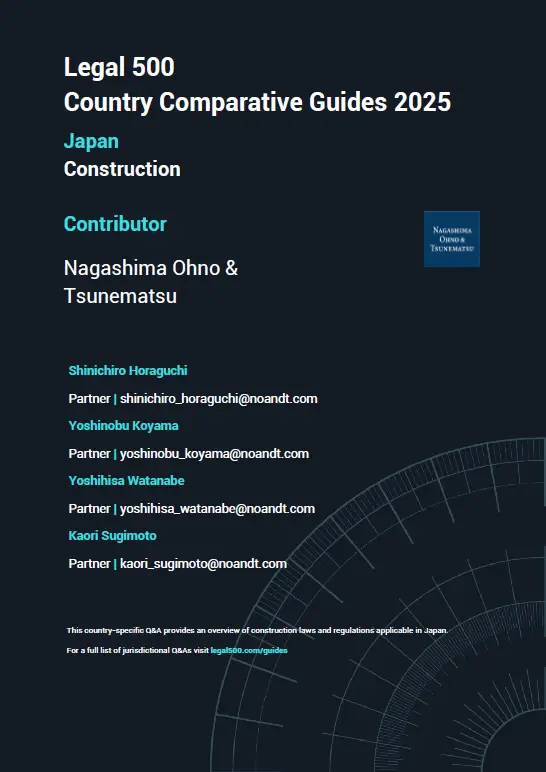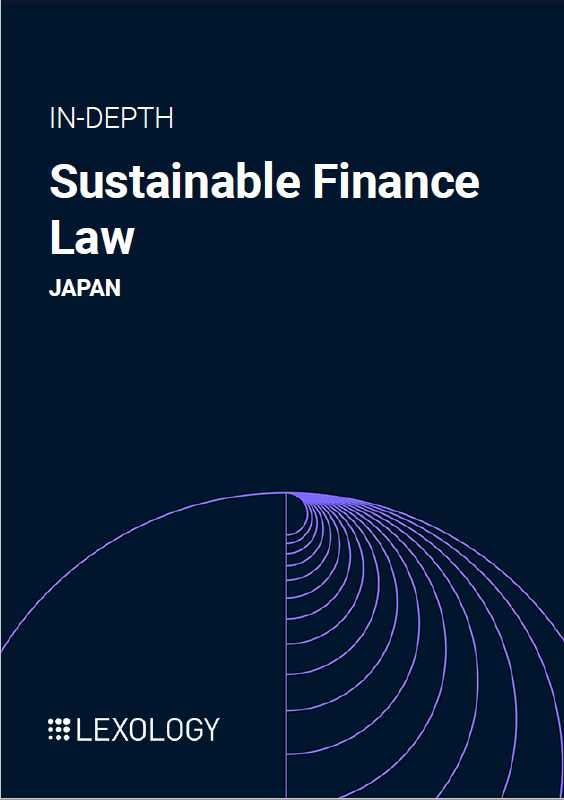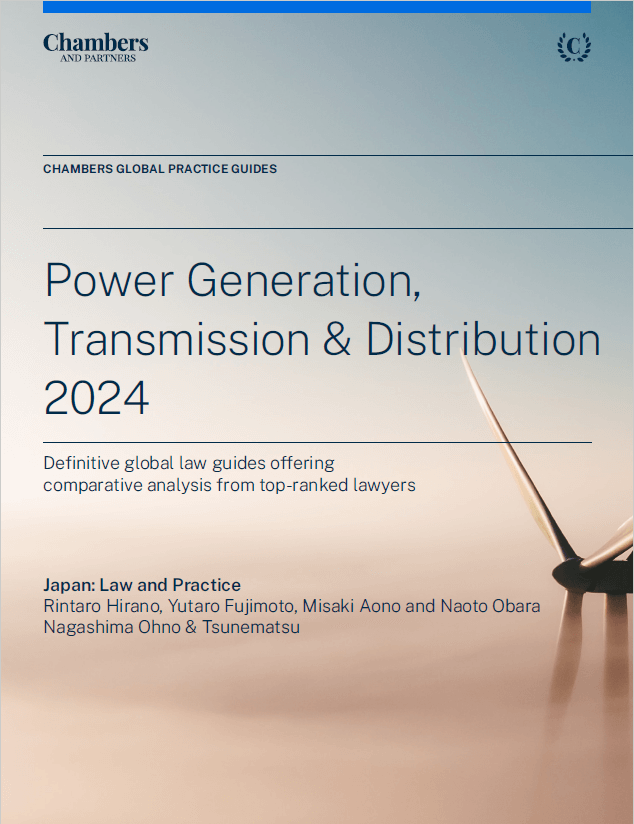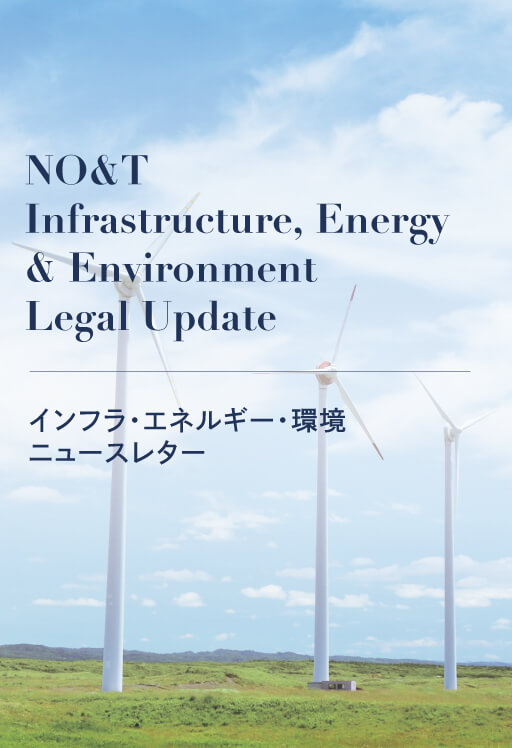
NO&T Asia Legal Review
Environmental, social and governance (“ESG”) metrics serve as a framework to measure the sustainability and ethical impact of an investment in a company. As of today, an increasing number of companies in Thailand are announcing their commitment to adopt ESG practices, which represent the following:
“E” stands for ‘Environmental’ representing the company's dedication to environmental responsibility. This encompasses various aspects, including the energy usage and efficiency, climate change strategy, waste reduction, biodiversity loss, greenhouse gas emissions and carbon footprint reduction.
“S” stands for ‘Social’ focusing on how the company treats its stakeholders to ensure social responsibility. This encompasses various aspects, including fair pay and living wages, equal employment opportunities, employee benefits, workplace health and safety, community engagement, responsible supply chain partnerships and compliance with labor laws.
Lastly, “G” stands for ‘Governance’ which examines how a company is governed. This includes assessing corporate policies on compliance, ethical business practices, avoidance of conflicts of interest, prevention of corruption and bribery and ensuring accounting integrity and transparency.
This article aims to provide an update on the current developments of ESG practices in Thailand, specifically focusing on the "E" – the environmental aspect.
According to the 13th National Economic and Social Development Plan which outlines 5 goals for Thailand’s transformation from 2023 to 2027, one of the main goals during this 5-year period is “ensuring the transition of production and consumption towards sustainability” which includes reducing pollution together with improving natural resource utilization in linewith ecosystem capacity※1.
However, the formal regulatory frameworks which regulate ESG as a compulsory obligation have not yet been developed; therefore, the implementation of ESG in Thailand by corporate sectors is still on a voluntary basis.
In Thailand, Thai financial market led by the Office of the Securities and Exchange Commission (“SEC”) and the Bank of Thailand (“BOT”) are the most active regulators which demonstrate their commitment to the sustainability goal and enhance the importance of ESG. They encourage listed companies and financial institutions to start implementing ESG principles and policies as explained below:
Since 2015, Stock Exchange of Thailand has been encouraging listed companies to develop their organization in line with sustainable business practices by creating the Thailand Sustainability Investment (“THIS”) list which comprises of listed companies that voluntarily value their responsibility to ESG and provides a choice to investors who desire to adopt a responsible investment approach.
Thereafter, in 2022, SEC took further steps towards the THIS list by mandating listed companies in Thailand to disclose information concerning their ESG performance across their entire business value chain by submitting the Form 56-1 One Report (the “One Report”) to the SEC on an annual basis. However, the One Report still does not impose an obligation on listed companies to implement the ESG practices. Instead, it serves as a means for listed companies to disclose the information to the investor to gain an understanding of the listed company’s ESG policy and material operations.
Furthermore, SEC promotes the issuance of sustainable financing instruments to finance projects with environmental and social benefits. These products include (i) sustainable bonds (i.e. green bonds, social bonds, sustainability bonds and sustainability-linked bonds)※2 and (ii) SRI Fund (i.e. a mutual fund that incorporates ESG factors as its key investment focus and reflects this in the investment objective and/or strategy). Additionally, to attract market participants to issue or set up these (i) and (ii) products, the SEC currently exempts official fees therefor.
Recently, BOT has issued Policy Statement of the Bank of Thailand Re: Internalizing Environmental and Climate Change Aspects into Financial Institution Business dated 15 February 2023. This policy statement by BOT does not have a mandatory effect, but BOT expects financial institutions and companies within the financial business group to adopt this policy statement so that it can appropriately assess climate-related opportunities and risks as part of their business conduct without creating additional risks. Another purpose of this policy statement is to have financial institutions provide green financial products and services to support concrete transition for the Thai economic and financial system to a more sustainable business environment.
In this regard, BOT will commence progress evaluation in accordance with the policy statement from 2024 onwards. In the early stage, the self-assessment exercise by financial institutions including foreign commercial bank branches will be used.
In accordance with the 13th National Economic and Social Development Plan (2023 to 2027), Thailand has established ambitious targets to address greenhouse gas emissions reduction. The short-term goal for Thailand is to reduce greenhouse gas emissions by a minimum of 20% by 2027, compared to the 17% reduction achieved in 2019. Looking ahead, Thailand is committed to achieving carbon neutrality by 2050 and attaining net-zero greenhouse gas emissions by 2065. These targets align with the statement made by Thai Prime Minister Prayut Chan-o-cha during the UN Climate Change Conference in Glasgow (COP26) in 2021.
To meet this target, Thailand is currently taking proactive measures by enacting several legislations and policies. Examples include provision of tax incentives for renewable power projects by Board of Investment of Thailand, exemption of import duty for Battery Electric Vehicle (BEV) and EV parts, mandating the design of new building construction to be of certain type and size to comply with the building energy code.
The Ministry of Energy is also currently in the process of formulating the National Energy Plan to align with the aforementioned net zero plan. As per the draft of the National Energy Plan thus far, the target is to have renewable and clean energy electricity generated from new power plants achieve at least 50% of the total new power plants within the prescribed timeframe, compared with the recent power generation statistics of 2022 released by the Energy Policy and Planning Office which reveals that the percentage of renewable energy power generation stands at 10.1% and hydroelectricity generation stands at 3.1% of the total power generation in 2022.
Moreover, there are many bills proposed that attempt to reduce greenhouse gas emissions, but these have so far not been approved by the Parliament e.g., Climate Change Bill which aims to establish a mechanism and plan for reducing greenhouse gas emissions and Bill on Pollutant Release and Transfer Registers whose primary purpose is to establish a system that mandates business operators to produce periodical report on the possession, release and transfer of chemical substances imposing risks to human health or the environment, including ozone-depleting substances.
Presently, Thailand has no legislation in relation to the tradeable emission permit or regulatory carbon market. However, Thailand has established Thailand Greenhouse Gas Management Organization (Public Organization) (“TGO”) under Ministry of Natural Resources and Environment as the focal point for carbon market in Thailand.
In 2014, TGO has launched the Thailand Voluntary Emission Reduction Program (“T-VER”)※3 to promote and support all sectors to voluntarily participate in the greenhouse gas emissions reduction program. The carbon credits which are gained from T-VER program are called TVERs (Thailand Verified Emission Reduction) which can be used to offset the carbon or sold to businesses unable to reduce their own emissions.
Net profit gained from the sale of carbon credit within Thailand under the T-VER Program shall be entitled to income tax exemption for 3 fiscal years pursuant to Royal Decree issued under the Revenue Code concerning the Tax Exemption (No. 760) B.E. 2566 (2023) dated 19 March 2023.
In addition to the T-VER Program which supports the trading of carbon credit in Thailand, there is also the scheme for voluntary purchasing of Energy Attribute Certificate (the “EAC”) which is a global certificate representing the environmental attributes of the generation of a one-megawatt hour (MWh) of energy produced by renewable sources.
In Thailand, the Electricity Generating Authority of Thailand is the local issuer of the International Renewable Energy Certification (“I-REC”) which is a type of EAC that prove the generation of energy through renewable sources. I-REC is still voluntary in Thailand since there is no legislation requesting the market participant to sell, purchase or use renewable energy in its business operation. However, using the I-REC, the participants can make reliable claims about their renewable energy usage or even participate in the RE100.
The I-REC and the T-VER are different schemes with different purposes. To avoid double counting on the same renewable energy attributes, the project which applies for the I-REC cannot apply for the T-VER and vice versa.
In recent years, there has been a rise of lawsuits against various business operators due to their false and misleading green claims, commonly referred to as “greenwashing”, in the global market. This issue has become so prevalent that the European Commission proposed a draft of the Green Claim Directive in March 2023 to address and combat such greenwashing claims.
However, when compared to the global market, the situation regarding greenwashing in Thailand is relatively less severe. As of the date of this article, no allegations or court judgments related to greenwashing claims have been identified. The sustainability claims and labeling in Thailand are currently regulated by the general principles of consumer protection law. Any claim which is false or exaggerated or causes misunderstanding in the essential elements concerning goods or services shall be deemed unfair to consumers or may cause adverse effects to society, which shall be prohibited under this law. As on date, there are no proposals to introduce new regulations specifically targeting greenwashing.
To avoid greenwashing allegations, there are voluntary standards that business operators could participate in order to obtain the environmental label to affix on their products, e.g. Thai Green Label and Carbon Footprint of Product.
For Thai Green Label or Eco-Label, it is an environmental certification initiated by the Thailand Business Council for Sustainable Development in October 1993 and formally launched in August 1994 by Thailand Environment Institute with the cooperation from various government agencies. It is the label awarded to environmentally friendly products, with specific standards established for each product category. As of January 2023, a total of 872 products from 119 companies/manufacturers have been certified with the Green Label※4.
For Carbon Footprint of Product, it is a project initiated by the TGO since 2009 to provide the consumer information on the greenhouse gas emissions of the products and services. Finished products that have their Carbon Footprint quantified based on their life cycle are eligible to use the carbon footprint label on their products. There is also a carbon footprint label issued for the organization. As of June 2023, there are 278 companies and 3,050 products actively participating in the Carbon Footprint of Products project※5.
ESG has evolved to become an emerging trend in Thailand. Companies that prioritize ESG values in their operations not only contribute to society and the planet, but are also likely to gain an advantage over their competitors.
However, one of the major challenges associated with ESG adoption is the identification and management of ESG risks in compliance with legal obligations. ESG initiatives, such as installing rooftop solar panels, participating in carbon market, and meeting disclosure requirements, all carry legal implications that companies must carefully observe. Establishing a working group to consider how the company would integrate ESG considerations into their governance and management system and consult the legal experts before making claims about their ESG adoption or labeling themselves as “green” is recommended.
*1
Office of the National Economic and Social Development Council
“https://www.nesdc.go.th/article_attach/article_file_20230615134223.pdf”
*2
According to the information published by SEC, green bonds, social bonds and sustainability bonds are bond instruments where the proceeds will be exclusively applied to finance or re-finance of eligible Green projects, Social projects or a combination of both Green and Social projects. Meanwhile, sustainability-linked bond is bond instrument for which the coupon and/or obligation on issuer to implement sustainability-related measures can vary depending on whether the issuer achieves predefined Key Performance Indicators and Sustainability Performance Targets
“https://sustainablefinance.sec.or.th/Bond”.
*3
Thailand Greenhouse Gas Management Organization (Public Organization)
“https://ghgreduction.tgo.or.th/en/what-is-t-ver/what-is-t-ver.html”
*4
Thailand Environment Institute “https://www.tei.or.th/greenlabel/download/2023-01-Name-GL-th.pdf”
*5
Thailand Greenhouse Gas Management Organization (Public Organization)
“http://thaicarbonlabel.tgo.or.th/index.php?lang=EN&mod=Y0hKdlpIVmpkSE5mWVhCd2NtOTJZV3c9”
This newsletter is given as general information for reference purposes only and therefore does not constitute our firm’s legal advice. Any opinion stated in this newsletter is a personal view of the author(s) and not our firm’s official view. For any specific matter or legal issue, please do not rely on this newsletter but make sure to consult a legal adviser. We would be delighted to answer your questions, if any.


(April 2025)
Shinichiro Horaguchi, Yoshinobu Koyama, Yoshihisa Watanabe, Kaori Sugimoto (Co-author)


(December 2024)
Hiromi Hattori, Yuichi Miyashita (Co-author)


Yuan Yao Lee


Hoai Tran


Yuan Yao Lee


Hoai Tran


(November 2024)
Rintaro Hirano, Koichiro Yoshimura, Yoshimune Muraji (Co-author)


(August 2024)
Rintaro Hirano, Yutaro Fujimoto, Misaki Aono, Naoto Obara (Co-author)


(December 2024)
Hiromi Hattori, Yuichi Miyashita (Co-author)


(September 2024)
Ryosaku Kondo (Comments)


Yoshihisa Watanabe


Jiro Mikami, Eiji Miyagi, Yoshihisa Watanabe, Saori Kawai (Co-author)


Patricia O. Ko


Ngoc Hoang


Yuan Yao Lee


Chattong Sunthorn-opas, Thunsinee Sungmongkol (Co-author)


Patricia O. Ko


Ngoc Hoang


Yuan Yao Lee


Chattong Sunthorn-opas, Thunsinee Sungmongkol (Co-author)


Chattong Sunthorn-opas, Thunsinee Sungmongkol (Co-author)


Yothin Intaraprasong, Yosuke Konno, Naruenad Charoenpakdee (Co-author)


Poonyisa Sornchangwat, Kwanchanok Jantakram (Co-author)


Yothin Intaraprasong, Chattong Sunthorn-opas, Thunsinee Sungmongkol (Co-author)